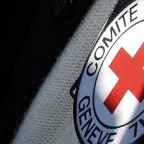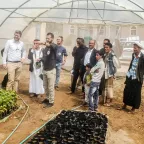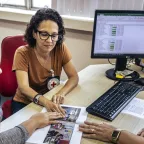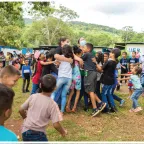Exhibition on urban warfare and its impact on the civilian population
… the only option. They leave behind their jobs and studies, belongings, security, hopes …
… the only option. They leave behind their jobs and studies, belongings, security, hopes …

Twenty-two months since the devastating violence on 07 October 2023, hostilities between Israel and Hamas and other armed groups in Gaza persist. The violence continues to exact an immense human …

… except in the month of Ramadan and in those jobs that are determined by a decision of the … of 5 per cent of their total workforce in jobs and professions suited to their … of persons registered with them for jobs suited to their age and occupational …

The Middle East’s water supplies – and the people who depend on them – are at breaking point. On this page that provides highlights of the full report, we detail the inter-related network of problems …

This is a summary of the final report of the evaluation of the qualitative and quantitative results of the Safer Access to Essential Public Services Programme. The program was developed by the ICRC …

… essential services, together with a lack of jobs, has resulted in mounting social …

Over the past ten years, several armed conflicts have plagued the Middle East and North Africa. These conflicts and other situations of violence have created unprecedented levels of human suffering …
The International Committee of the Red Cross (ICRC) is a humanitarian organization that operates according to the Fundamental Principles of impartiality, neutrality and independence and has the …
… the only option. They leave behind their jobs and studies, belongings, security, hopes …

2022 was a year of growth, in which we explored new ways of protecting and assisting people affected directly or indirectly by the armed violence in Venezuela. We improved people's access to clean …

Try one of the following resources:
Created in 1863, the ICRC library, alongside the ICRC archives, provides an indispensable documentary reference on the organization itself and international humanitarian law.
International humanitarian law is based on a number of treaties, in particular the Geneva Conventions of 1949 and their Additional Protocols, and a series of other instruments.
Customary international humanitarian law consists of rules that come from "a general practice accepted as law" and that exist independent of treaty law.